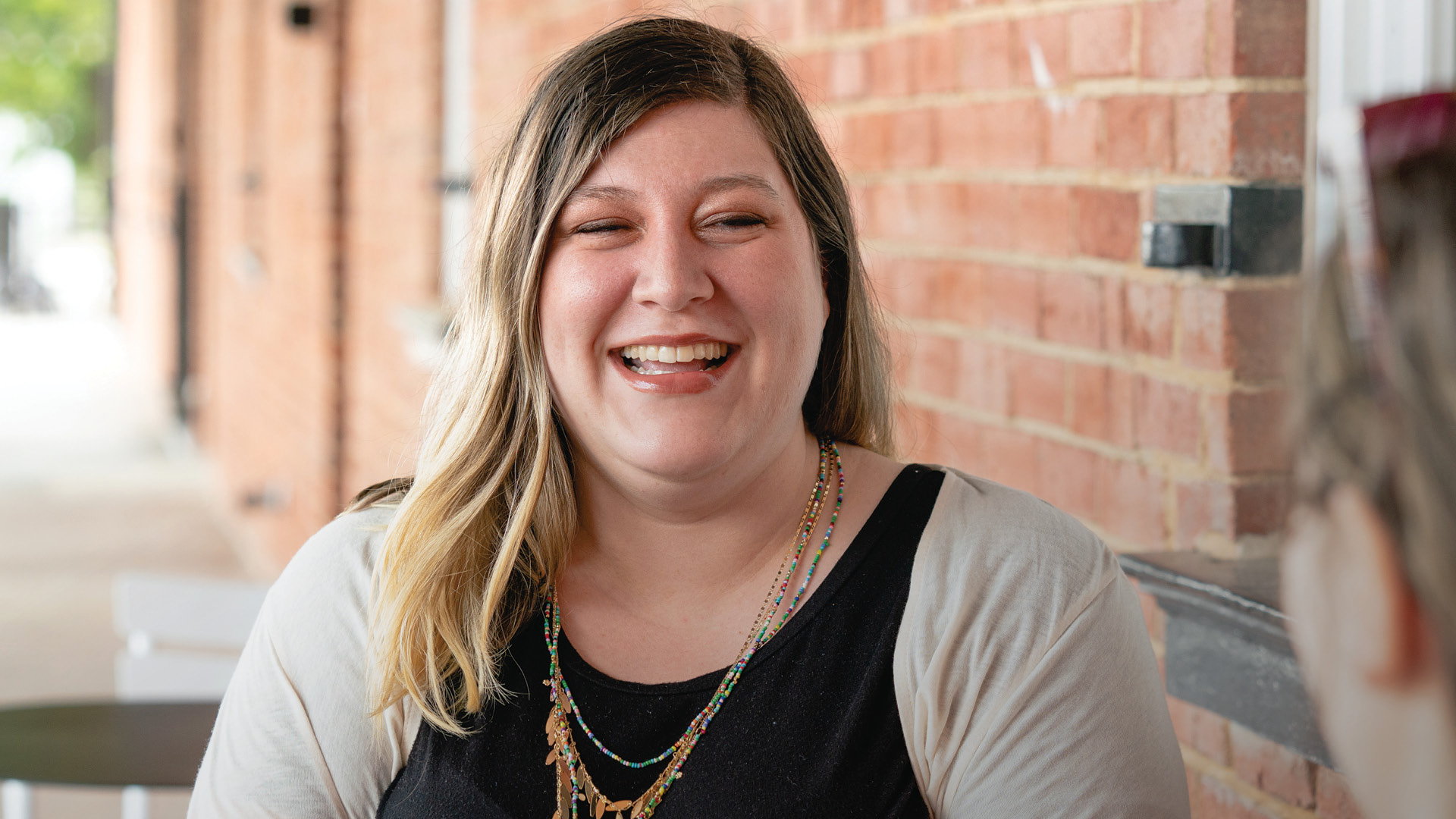“I accepted Christ as my Savior when I was four, but my teenage years were filled with silence, secrecy, and darkness,” said Hannah Pickle. “When I was eleven, I experienced several different episodes of sexual abuse from the same person. I knew something was wrong with what was happening, but I thought I was also in the wrong. When I told an adult in my life, the abuse stopped, but there was never a follow-up conversation.
“Unsure how to process my feelings and experiences, I spent most of my time home alone on the internet. Out of curiosity, I discovered pornography, and an addiction soon followed. In online chatrooms and gaming, I created two separate lives for myself. At church, I was a ‘good Christian girl,’ but online I was very different. By the time I was 16, I had replaced the majority of my in-person relationships with online relationships. The internet deceptively felt like a controlled space as I sought after attention, protection, and validation from men.
“After my high school graduation, I moved out of my parents’ house and was living on my own. This provided a lot of silence and time for me to reflect and pray to God. I did not want to continue living the way I was living. As I learned more about the grace that God provided, I realized that my sin had no power over me. At this point, I wanted to bring my sin and my past to the light instead of allowing it to sit in darkness. This felt like a big turning point, and I decided to pursue the Lord more as I cut out unhealthy relationships.
“Years later, through counseling and processing, I was able to put a label on what happened to me as a child. I had never connected my experience with the word, ‘abuse.’ For so long, this affected my life and relationships, but I never connected the dots.
“God continued to intervene in ways I couldn’t have imagined myself. The very first person I saw that day after my realization was a friend who immediately confided in me about her own sexual abuse. She could see my discomfort and encouraged me to share what was on my mind. This was the first time I told somebody my story and called it what it was: abuse.
“As I continued to process my childhood experiences, I was angry. I was angry at the perpetrator, and I was angry at the people I told as a child because I didn’t receive any further care. I began to withhold and keep my anger suppressed, so anxiety grew. Fear of seeing the perpetrator (who was still a part of my life) resulted in frequent panic attacks, and I eventually avoided any events where we would cross paths.
“During this time, I also became a Member at Watermark. On multiple occasions, I heard sermons at The Porch and Sunday services about forgiveness. I learned the biblical importance and meaning of forgiveness, and it became very heavy on my heart that I too needed to forgive. I knew God was asking me to forgive the perpetrator from my childhood.
“One day, while reading Psalm 103, I prayed it over my perpetrator instead of myself. That is the moment I realized I had forgiven him. I don’t think everyone has a grand moment where they experience forgiveness; I know it is a continual process. But at this moment, I knew God was helping me. It felt impossible, but the truth of Christ and His sacrifice for His children gave me a reason and purpose to forgive. As I remembered the continual forgiveness Christ has given me, I found a reason and purpose to forgive as well.
“With a mediator, I was able to meet with the perpetrator and read a letter of forgiveness I’d written. The perpetrator himself admitted his actions were abuse and admitted I was the victim. He recognized his need for God multiple times in our conversation, and he asked for my forgiveness. It felt like a clean slate, and we were able to start our relationship completely over in a way that didn’t minimize the abuse but a way that allowed God to continue healing.
“Healing continued when I participated in Watermark’s sexual abuse ministry, Courageous Hope. It really helped me think through the multiple instances of abuse in my lifetime. It brought my experiences and pain back to God and Scripture. I didn’t suddenly become ‘fixed’ or ‘better,’ but I have tools to healthily process.
“My life now is imperfect but redeemed. I am learning to be a person that is open, honest, and caring, and who doesn’t put myself down for the sake of a joke because I know my value and identity is in Christ. The parts of my life that were separate for so long are now combined with integrity. I have healthy relationships online and in-person where I point people to Christ. That’s also why I lead in Courageous Hope. When I was in darkness, I needed to be told there was hope that can be found in Christ. I want to be that person to someone else, to remind them that they can be courageous in Christ.”
Courageous Hope is a Christ-centered recovery ministry (led by women) that helps women who have experienced sexual abuse find the courage to process trauma and find hope and healing through God’s Word.
